Dear all,
This month, most of us will attend the 43rd Benelux meeting on Systems and Control, which will be held in Blankenberge, Belgium. This annual event has been the meeting place for all of us to gather and discuss plans and topical issues that are relevant for our community. I am looking forward to meeting most of you in person during this important scientific meeting.
In this newsletter, we are happy to invite you to participate in our DISC Summer School on “Learning, sensing and control with application to agriculture”, which will be jointly organized with the graduate school for Production Ecology & Resource Conservation (PE&RC) of University of Wageningen.
Fantastic speakers are lined up to give courses for our researchers. I would like to invite all of you to take a look at the program and enroll yourself to the summer school.
We would also like to congratulate prof. Tom Oomen, who had held an inaugural lecture on “Learning in Control” on 14th March. His group has contributed to the advancement of various learning methods for control systems and to the adoption of advanced control methods by the high-tech industries. Next month, prof. Paul van den Hof will hold his valedictorian speech which is preceeded by a symposium on “Four decades of data-driven modelling in systems and control”. We are looking forward to celebrating the occasion.
With best regards,
Bayu
Renate
The DISC course schedule 2023-2024 is finalised.
All courses will take place in Utrecht at Cursus- en vergadercentrum Domstad.
We offer the following courses in 2024:
Please note that we have reached the maximum capacity for Model Predictive Control.
Last week the 43rd Benelux Meeting on Systems and Control took place in Blankenberge (Belgium). The event attracted 295 participants in total.
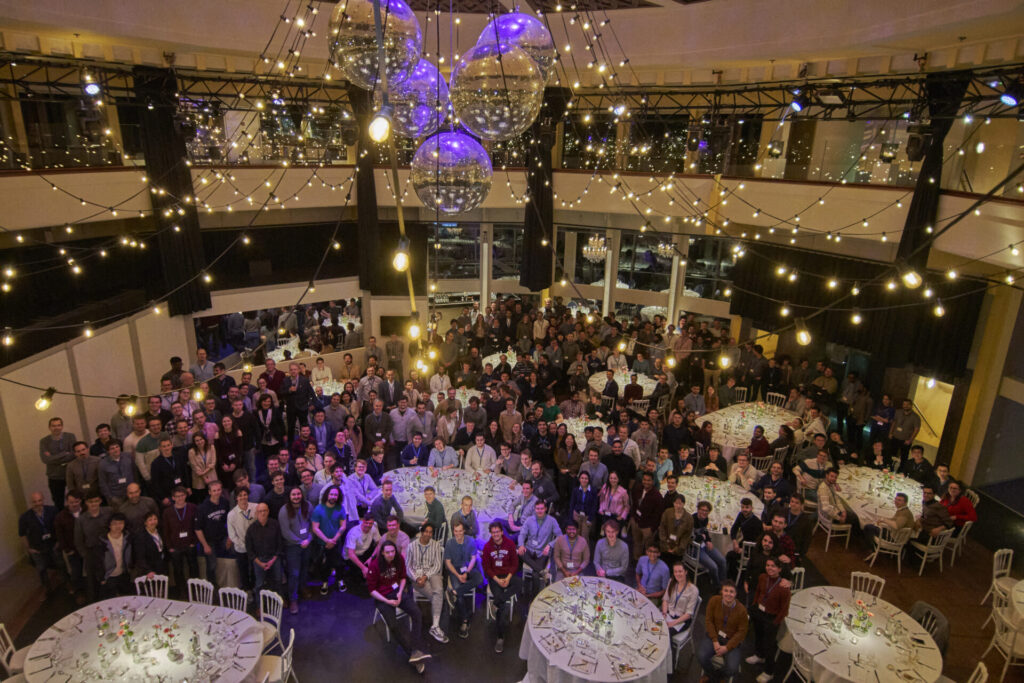
On behalf of the DISC community we want to thank the organisers of this year’s edition. The 44th edition of the meeting will take place in the Netherlands.
During the Benelux Meeting the annual Best Junior Presentation Award was handed out.
The prize honors the best presentation at the Benelux Meeting by a junior speaker, i.e., a researcher working towards the PhD degree. The prize consists of a trophy that is made available by DISC and that is to be kept by the winner for one year (until the next Benelux Meeting). The winner will also get an award certificate.
This year’s Prize Commissioners were: Michelle Chong (Technical University of Eindhoven), Wilm Decré (KU Leuven) and Wouter Hakvoort (University of Twente)
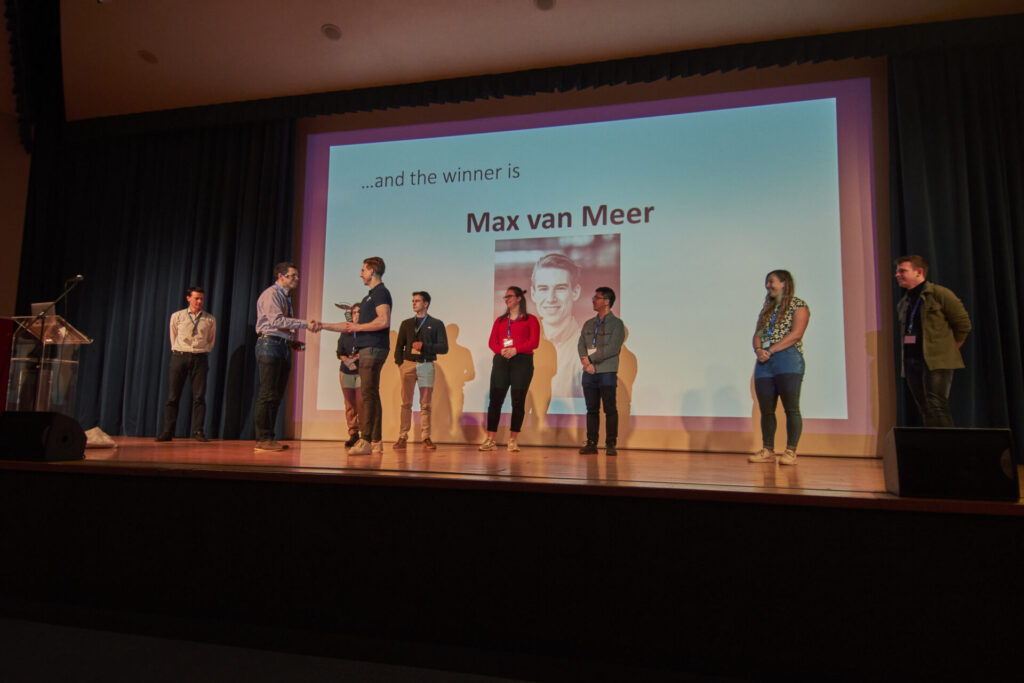
The price was won by Max van Meer from Technical University of Eindhoven.
This annual Best Thesis Award is for the best dissertation written by a DISC PhD student. An important condition is that the candidate should have obtained his/her PhD within 54/58 months and that he/she has acquired a DISC certificate.
The following people were nominated for the prize :
– Mattia Bianchi (TUD)
– Carmen Chan-Zheng (RUG)
– Twan Keijzer (TUD)
– Patrick Koelewijn (TU/e)
– Mehran Shakarami (RUG)
– Brayan Shali (RUG)
The jury was pleased about the high quality of the different thesis.
The price was handed out by jury member Jan Willem Polderman (UT). The other jury members were Michel Verhaegen (TUD) and Sasha Pogromski (TU/e).
The winner of the DISC Best Thesis Award 2023 was Mehran Shakarami. Congratulations Mehran!
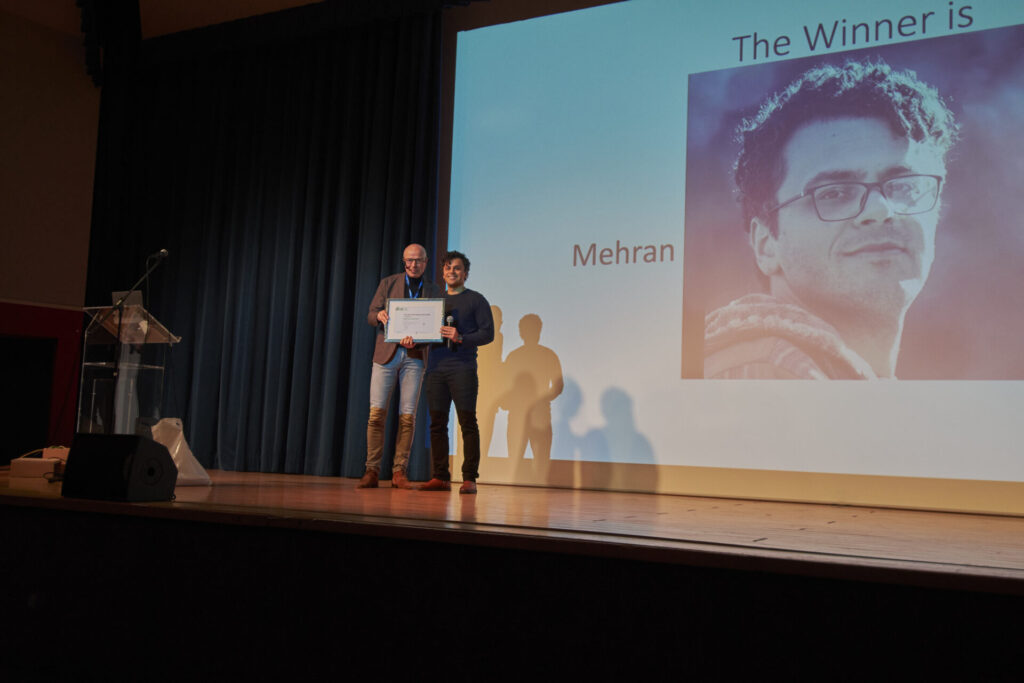
Mark your calendars for April 9th as we take you on a journey into the world of science, technology, society, and business at the University of Twente’s Robotics Day! Prepare to be captivated by over 15 expert talks offering new insights into the latest developments, with a special emphasis on “fresh perspectives” on robotics.
Here’s a sneak peek:
The Future of Surgical Robotics Join the esteemed Prof. Dr. Ivo Broeders, a pioneer in the field of surgical robotics, as he unveils the path to revolutionary advancements in surgical procedures.
The Future of Assisted Work Gain invaluable insights from Dr. Suzanne Janssen on the role of robots as collaborators in the workplace, shaping the future of work dynamics.
The Future of Interaction Witness a spellbinding theatrical robot demonstration by the ingenious Dr. Ir. Edwin Dertien, showcasing the seamless integration of robotics into everyday interactions.
The Future of Robotics Technology Delve into the world of agricultural robotics with the distinguished Prof. Dr. Ir. Eldert van Henten, as he illuminates the transformative potential of robotics in revolutionizing agricultural practices.
This is your exclusive opportunity to explore the forefront of robotics innovation, offering a firsthand glimpse into the boundless possibilities that lie ahead. Prepare to be inspired, energized, and forge meaningful connections that could shape the future of robotics.
Don’t miss out on this extraordinary event! Secure your spot now and unlock the door to a future defined by innovation and limitless potential.
For more information and registration, visit: https://ut.onl/RD24
This year we organise a Summer School together with PE&RC from Wageningen . The Summer School takes place from Sunday June 16, 2024 – Friday June 21, 2024 in Parkhotel ‘de Bosrand’, Ede, the Netherlands. It starts on Sunday at 16:00.
During the past decades, precision technology, robotics and machine intelligence have become increasingly important for farming systems like greenhouses, open field, and animal husbandry. Systems and control methods play a pivotal role in this. Successful and sustainable automation of farm management relies on accurate and reliable monitoring, fault detection, prediction and control.
However, these tasks are generally challenging. A key challenge is providing precise and robust and reliable operation under great variability between and within systems, for example in weather patterns, crop response, soil properties, crop properties, occlusion by leaves, and disease occurrence. Another challenge is formed by great system complexity, comprising physics and biology, large numbers of processes and processes that take place on vastly different time scales. Yet another challenge is to monitor processes for which the variables of interest cannot be measured directly or accurately, such as food quality aspects.
A key opportunity is formed by the combination of control methods and learning methods that employ real-time data streams. Particular areas that have seen substantial development over the past decades are:
This Summer School presents the state-of-the-art methods for the above mentioned methods for various farming applications such as irrigation scheduling, food processing, greenhouse management, and plant harvesting and inspection. The course will consist of lectures from worldwide experts, and hands-on practicals with real life examples.
| Target Group | PhD candidates or junior researchers |
| Course duration | 5 days |
| Language of instruction | English |
| Number of credits | 1. 5 ECTS |
| Prior knowledge | Participants should have knowledge of robotics, sensing and control |
| Location | Hotel de Bosrand, Ede |
| Sunday 16 June | |
| 16:00 – 17:00 | Registration and welcome |
| 17:00 – 17:30 | Introduction to the course and set-up |
| 17:30 – 18:30 | Ice-Breaker Drinks |
| 18:30 – 19:30 | Dinner |
| 19:30 – 21:00 | Poster carousel |
| Monday 17 June | |
| 8:30 – 12:30 | Lecture James Taylor, discussion and exercises/hands-on practicum |
| 12:30 – 13:30 | Lunch |
| 13:30 – 16:00 | Forming of groups and formulation of million dollar problem per group |
| 16:00 – 17:00 | Lecture Meichen Guo and discussion |
| 17:00 – 18:30 | Free time |
| 18:30 – 20:00 | Dinner |
| Tuesday 18 June | |
| 8:30 – 12:30 | Lecture Koty McAllister, discussion and exercises/hands on practicum |
| 12:30 – 13:30 | Lunch |
| 13:30 – 16:00 | Group work on million dollar questions |
| 16:00 – 17:00 | Lecture Congcong Sun |
| 17:00 – 18:30 | Free time |
| 18:30 – 20:00 | Dinner |
| Wednesday 19 June | |
| 8:30 – 12:30 | Lecture Abeje Mersha, discussion and exercises/hands on practicum |
| 12:30 – 13:30 | Lunch |
| 13:30 – 16:00 | Group work on million dollar questions |
| 16:00 – 17:00 | Lecture Gert Kootstra |
| 17:00 – 18:30 | Free time |
| 18:30 – 20:00 | Dinner |
| Thursday 20 June | |
| 8:30 – 12:30 | Lecture Raphael Linker, discussion and exercises/hands on practicum |
| 12:30 – 13:30 | Lunch |
| 13:30 – 17:00 | Group work on million dollar questions |
| 17:00 – 18:30 | Free time |
| 18:30 – 19:30 | Dinner |
| Friday 21 June | |
| 8:30 – 12:00 | Synthesis of group work |
| 12:00 – 13:00 | Lunch |
| 13:00 – 15:00 | Tour campus (optional) or goodbye |
| 15:00 – 17:00 | Drinks in Orion |
Information on the fees can be found by the registration form.
Early bird deadline is 21-04-2024
Claudius van de Vijver (PE&RC)
Email: claudius.vandevijver@wur.nl
Delft University of Technology
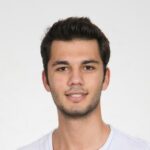
Name: Celal Umut Kenanoğlu
Starting date: 01-03-2024
Function: PhD
Email: c.u.kenanoglu@tudelft.nl
Group: TUD -ME – CoR
Supervisor: Dr. Yasemin Vardar
Project: Adaptive Electrostatic Tactile Feedback for Vehicle Touchscreens
Celal Umut Kenanoğlu, a new Ph.D. student per March 1, will work on Adaptive Electrostatic Tactile Feedback for Vehicle Touchscreens under the supervision of Dr. Yasemin Vardar at HITLAB. He is interested in any sport. He likes playing basketball, football, and computer games.
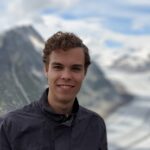
Name: Menno van Laarhoven
Starting date: 15-01-2024
Function: PhD
Email: m.t.p.vanlaarhoven@tudelft.nl
Group: 15-01-2024
Supervisor: Carlas Smith
I’m Menno, and I’m excited to start as a PhD student in Carlas Smith’s team this January to work on microscopy-guided control of biological processes. Originally, I’m from a small town near Utrecht, here in The Netherlands. I moved to Delft for my further studies, completing both my bachelor (Maths and Physics), and master studies (System & Control). In my free time you can find me playing korfball and find me being involved with the Delft Formula student team (as alumnus).
Eindhoven University of Technology
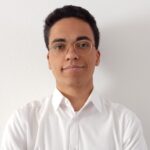
Name: Juan Javier Palacios Roman
Starting date: 01-03-2024
Function: PhD
Email: j.j.palacios.roman@tue.nl
Group: TU/e – CST
Supervisor: dr. ir. Thijs van Keulen
Project: Extremum seeking control for the exhaust control in nuclear fusion reactors
My name is Juan Javier Palacios Roman and I will be doing a PhD in the CST group under the supervision of dr. ir. Thijs van Keulen. I have completed my Bachelor and Master degree in Mechanical Engineering right here in Eindhoven. During my Master degree, I enjoyed learning about various different types of controllers and their applications, because it is just an incredibly rich topic. As such, I will be doing my PhD in a to me new control structure, extremum seeking control, and its application in the exhaust control of nuclear fusion reactors.
Candidate: J. Noom
Group: TUD – ME – DCSC
Thesis: Input design and data-driven approaches on convex optimization for fault diagnosis in linear systems
Promotor: Prof.dr.ir. Michel Verhaegen, co-promotores: dr. Oleg Soloviev, dr Carlas Smith
Date: 18-04-2024
Location: Aula, Senaatzaal
Time: 12:30
Candidate: A.K. Pamososuryo
Group: TUD – ME – DCSC
Thesis: Wind Turbine Load Control and Estimation: Advancements by Coordinate Transformations
Promotor: Prof.dr.ir. Jan-Willem van Wingerden, Dr. R. Ferrari, co-promotor : Dr. ir. S.P. Mulders
Date: 19-04-2024
Location: Aula, Senaatzaal
Time: 10:00
The next issue of this Newsletter will appear in April 2024.
We encourage the contributors to provide newsworthy information. In principle, we intend to publish any message offered. However, we reserve the right to edit certain parts of a submission.
Please send your contributions to: Secr-DISC-ME@tudelft.nl.
You receive this newsletter because you are a member of DISC. If you want to be removed from the mailing list, please let us know by sending an email to Secr-DISC-ME@tudelft.nl.